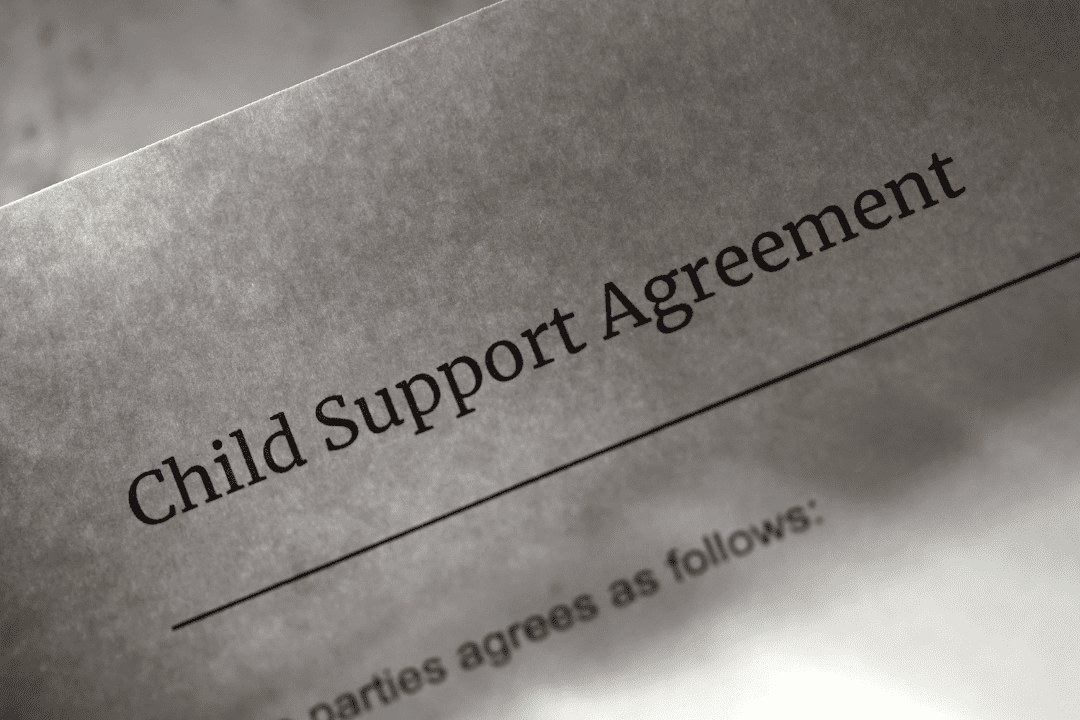Is Child Support Tax Deductible?
Is child support tax deductible?
No. According to the Internal Revenue Code, child support payments are not tax deductible for the paying spouse, nor is the receipt of child support considered taxable income for the receiving spouse.
However, there are other tax benefits related to coparenting dependent children that are important to recognize. In this article, we’ll cover everything you need to know about the tax code as it pertains to divorce agreements, such as:
- The tax implications of the Tax Cuts and Jobs Act (TCJA) on the alimony and the dependency exemption
- How certain tax credits, such as the child tax credit or child and dependent care tax credit work
- Situations where it might make sense for the custodial parent to allow the non-custodial parent to take certain tax credits
Let’s start by walking through the impact of TCJA on the dependent exemption.
Contents
The impact of TCJA
The Tax Cuts and Jobs Act, a tax bill signed into law by President Trump in 2017, was one of the most significant changes to the tax code in several decades. Although this new tax law created many wide-sweeping changes, there are two notable changes:
- The impact of TCJA on the tax deduction related to alimony payments
- The suspension of the personal exemption
How did TCJA impact alimony?
Prior to TCJA, spousal support payments, also known as alimony, was tax-deductible for the paying spouse. At the same time, the Internal Revenue Service considered alimony payments to be taxable income for the recipient spouse.
In other words, the payer received a tax break while the recipient had to pay taxes on alimony. At the same time, child support payments received the same tax treatment, both before and after TCJA. Why does this matter?
TCJA created an incentive for some spouses to go to court
TCJA eliminated the above-the-line tax deduction for alimony payments on divorce agreements finalized after December 31, 2018. With this, TCJA also eliminated one of the incentives for a higher-earning spouse to agree to financial support payments to start with.
Starting in 2019, the loss of a tax write-off means that every dollar going to spousal maintenance payments is a dollar completely lost to the paying spouse. Many situations that both spouses might have been able to settle out of court during the divorce process now might cost more to litigate. This is particularly true in states without spousal support formulas or guidelines.
This incentive to fight over alimony can decrease the amount of cooperation on some other tax benefits a divorcing couple might share. But before we get to that, we should discuss the other major TCJA impact: the temporary elimination of the personal exemption.
What was the personal exemption?
Prior to TCJA, a taxpayer used to be able to claim a personal exemption for each household member listed as a dependent on his or her income tax return. This personal exemption allowed the taxpayer to receive a tax deduction on behalf of each household member.
TCJA significantly increased the standard deduction for all taxpayers, which mitigated some of the impact of the lost personal dependency exemption. However, tax filers whose itemized deductions still exceed the new standard deduction have completely lost this tax break. At least temporarily.

Not only did their tax deductions remain unchanged, but their tax bill still went up because of the lost exemption. For a lower-income, custodial spouse who might be completely dependent on financial support from the noncustodial parent, this could be a double-whammy.
Is the personal exemption permanently gone?
The TCJA suspended the personal exemption for federal income tax purposes for the tax years beginning in 2019 through 2025. If no new law is passed before then, then the TCJA provision will expire, and taxpayers will be able to use the personal exemption beginning with the 2026 tax year.
Fortunately, there are still some tax credits available to the custodial parent. And these tax credits might be negotiable in some cases, which creates some incentives for both parents to work together when finalizing their divorce decree.
Tax benefits that might help both parents
Even though no amount of child support is tax deductible, there are still tax benefits that may be available. As a general rule, the more closely a divorcing couple can work together, the more they’ll be able to minimize the tax issues for either household.

For example, a custodial parent may agree to willingly release his or her claim to a child exemption when it makes the most sense. By filing IRS Form 8332, Release/Revocation of Release of Claim to Exemption for Child by Custodial Parent, a custodial parent can allow the noncustodial parent to claim the following tax credits:
- Child tax credit
- Additional child credit
- Credit for other dependents, if applicable
A good divorce attorney might recognize this up front, and work to negotiate these terms in advance of the divorce court order. That way, both spouses end up turning over less tax money to the Internal Revenue Service.
Not all tax benefits are transferrable
Unfortunately, parents cannot negotiate all tax benefits in this manner. Here are some examples of tax credits or other benefits that one spouse cannot transfer to the other:
- Earned income credit
- Child and dependent care credit
- Head of household filing status
Earned income credit
The earned income tax credit, known as EIC or EITC, is not transferrable. However, the taxpayer must meet certain income, residency, and other criteria to claim the credit. Below are the 2023 EITC tables:

Child and dependent care credit
According to IRS Publication 503, Child and Dependent Care Expenses, only the custodial parent may file IRS Form 2441 to claim a tax credit for expenses incurred in caring for a child.
The child must be a qualifying person, which means that the claimant must ascertain:
- The child was under age 13 or wasn’t physically or mentally able to care for himself or herself during the tax year
- The child received over half of his or her support during the calendar year from one or both parents who are:
- Divorced or legally separated under a decree of divorce or separate maintenance,
- Are separated under a written separation agreement, or
- Lived apart at all times during the last 6 months of the calendar year;
- The child was in the custody of one or both parents for more than half the year; and
- He or she was the child’s custodial parent
In other words, this credit depends largely on which parent is listed in the court order as the custodial parent.
Head of household filing status
As a head of household, the parent of a qualifying child can receive a tax break. However, the IRS requires that a parent meet the following requirements:
- Be not married, or considered unmarried on the last day of the year
- Have paid more than half of the cost of keeping up a home, that was the parent’s home and the main home of the qualifying child for more than one-half of the year.
- The child is your qualifying child for purposes other than the dependency exemption and the child tax credit.
The good news is that if you meet these requirements, you can still claim head of household filing status while married.
Recommendations for divorcing parents
From a tax perspective, there are still ways for both parents to keep their overall tax bill low. Here are three recommendations.
Find ways to negotiate win-win opportunities
TCJA made this more difficult by eliminating the spousal support tax deduction. But that doesn’t mean that both parents can’t find trade-offs for mutual benefit.
Be amicable
Regardless of what you think about your other spouse, he or she is your child’s parent. Even at a young age, children are capable of forming their own opinions about their parents.
And most children are pretty good at detecting one parent’s efforts to undermine the other.
Hire professional help
Beyond a good divorce attorney, your tax situation might require a financial expert to help sort through. You might find that a certified public accountant can help in certain situations. But a Certified Divorce Financial Analyst or a financial planner that specializes in divorce cases might help provide a clearer picture of your finances.
From there, your hired expert might help you uncover ways for both spouses to benefit.